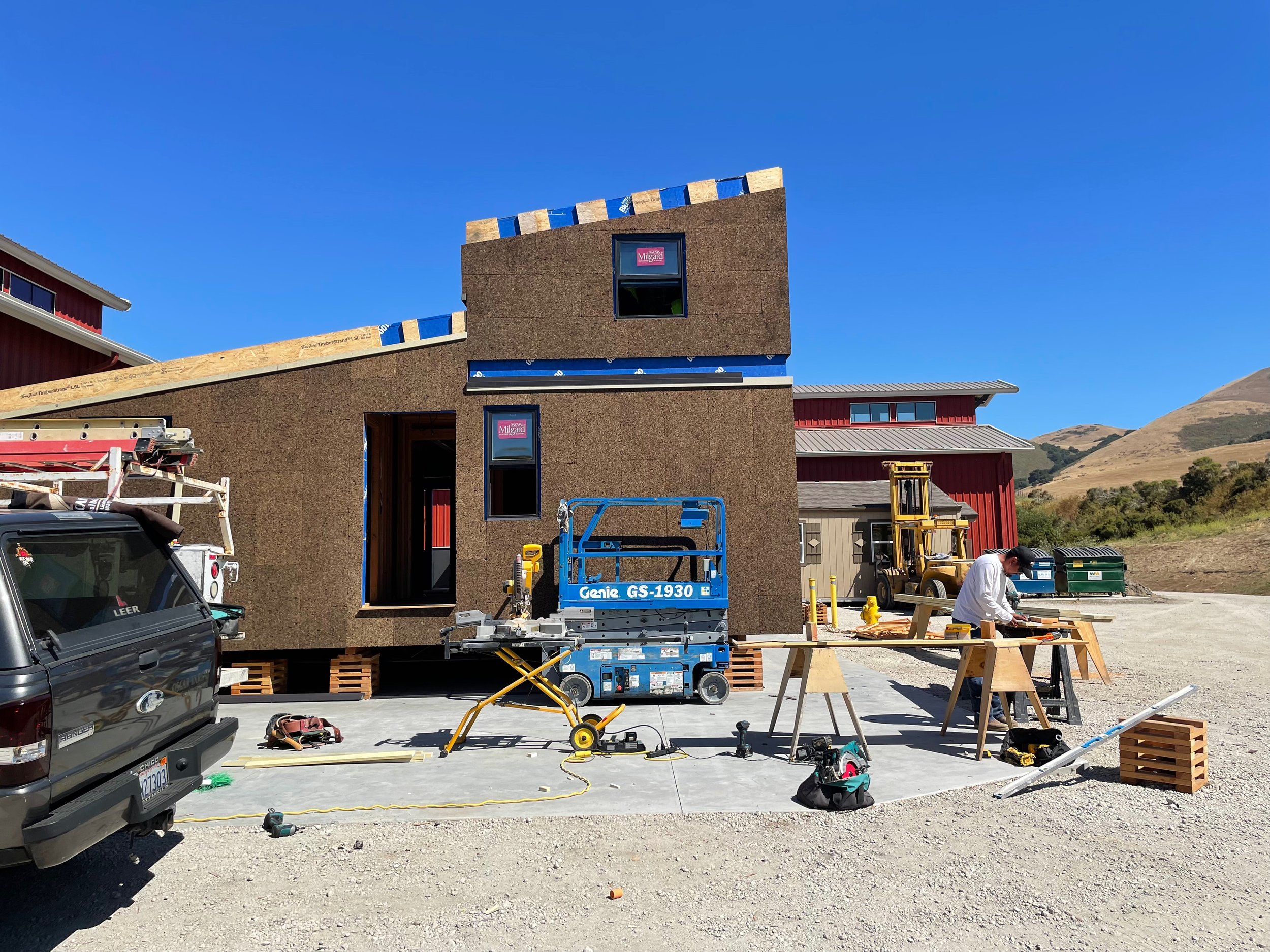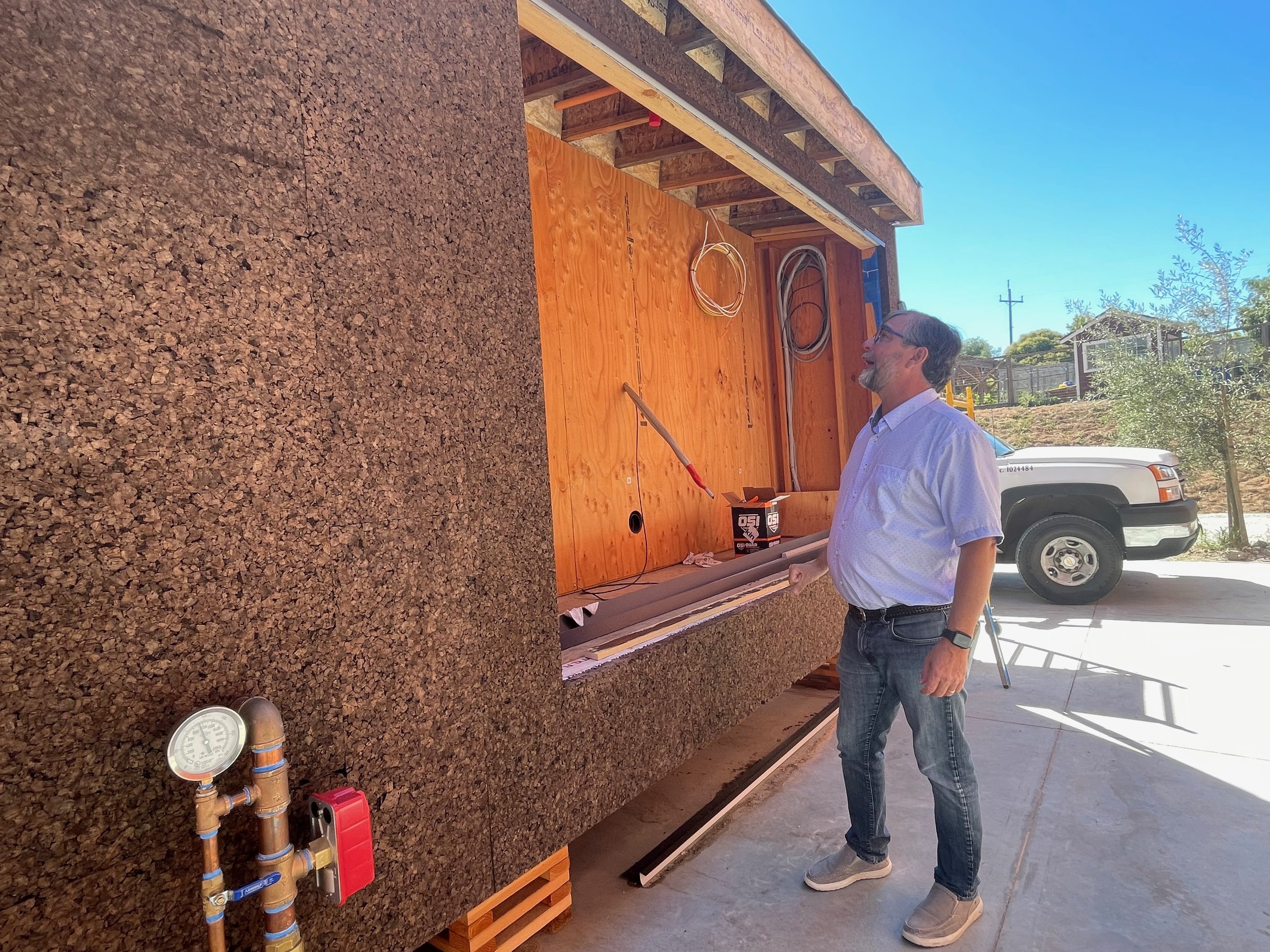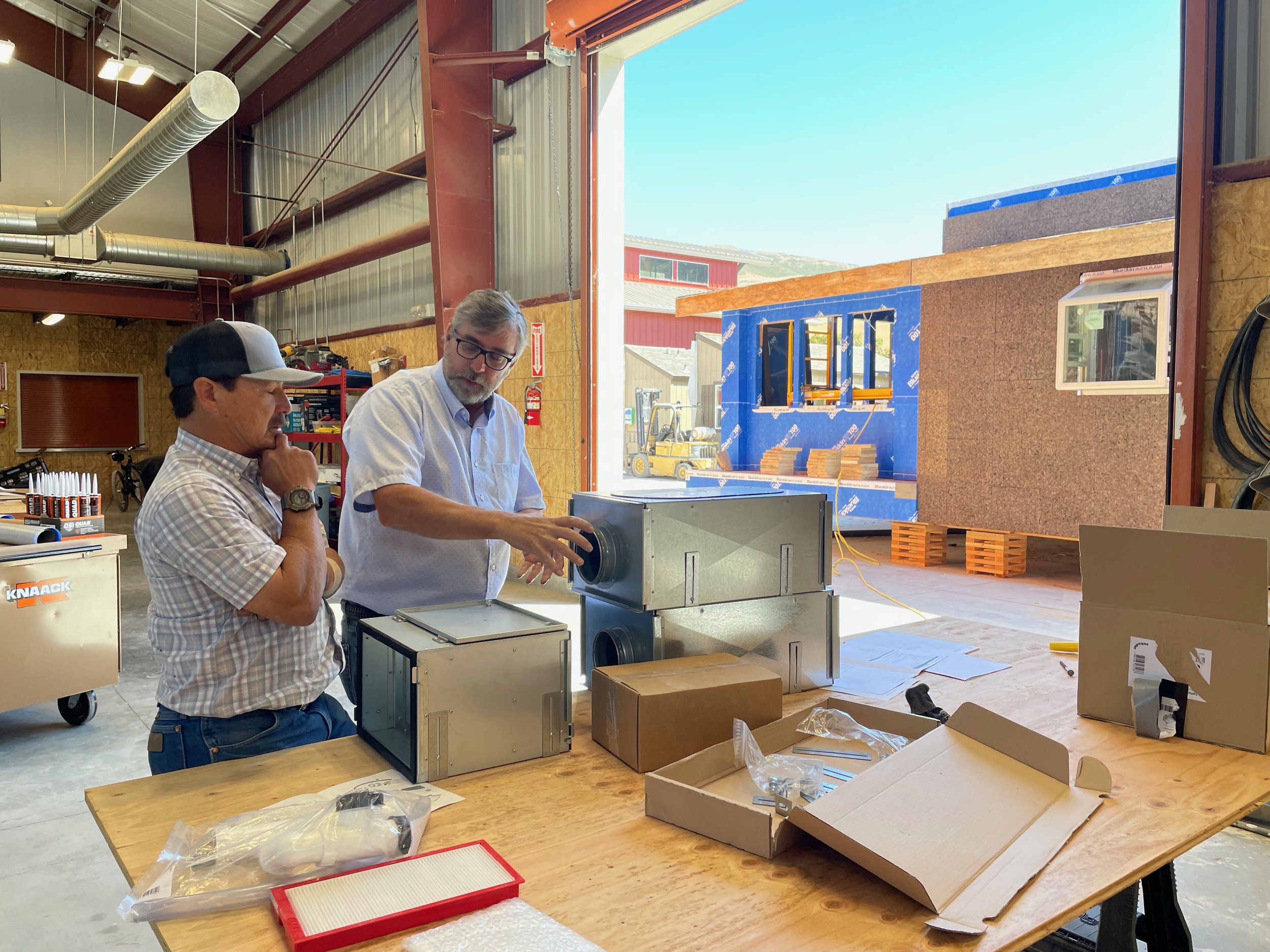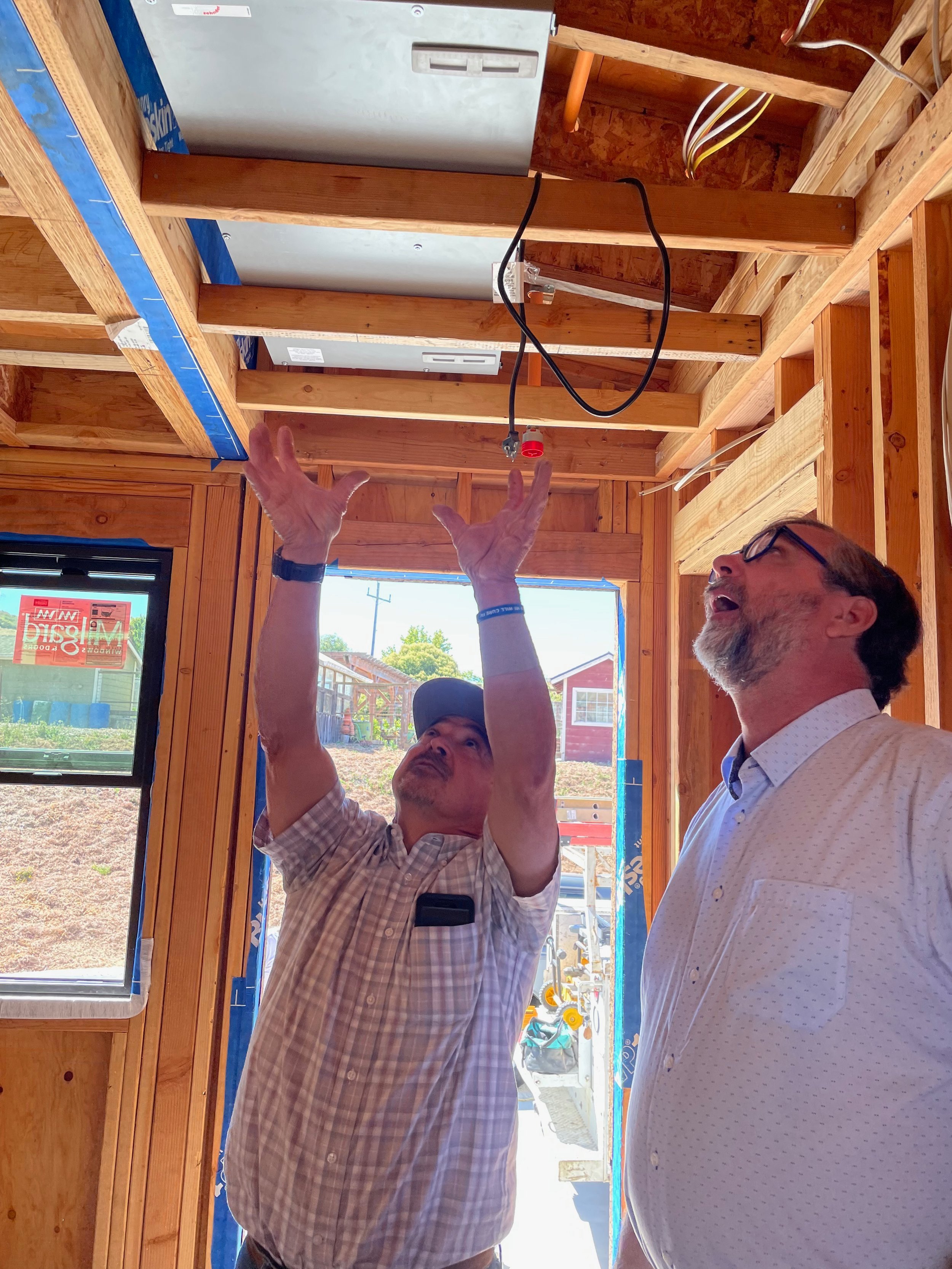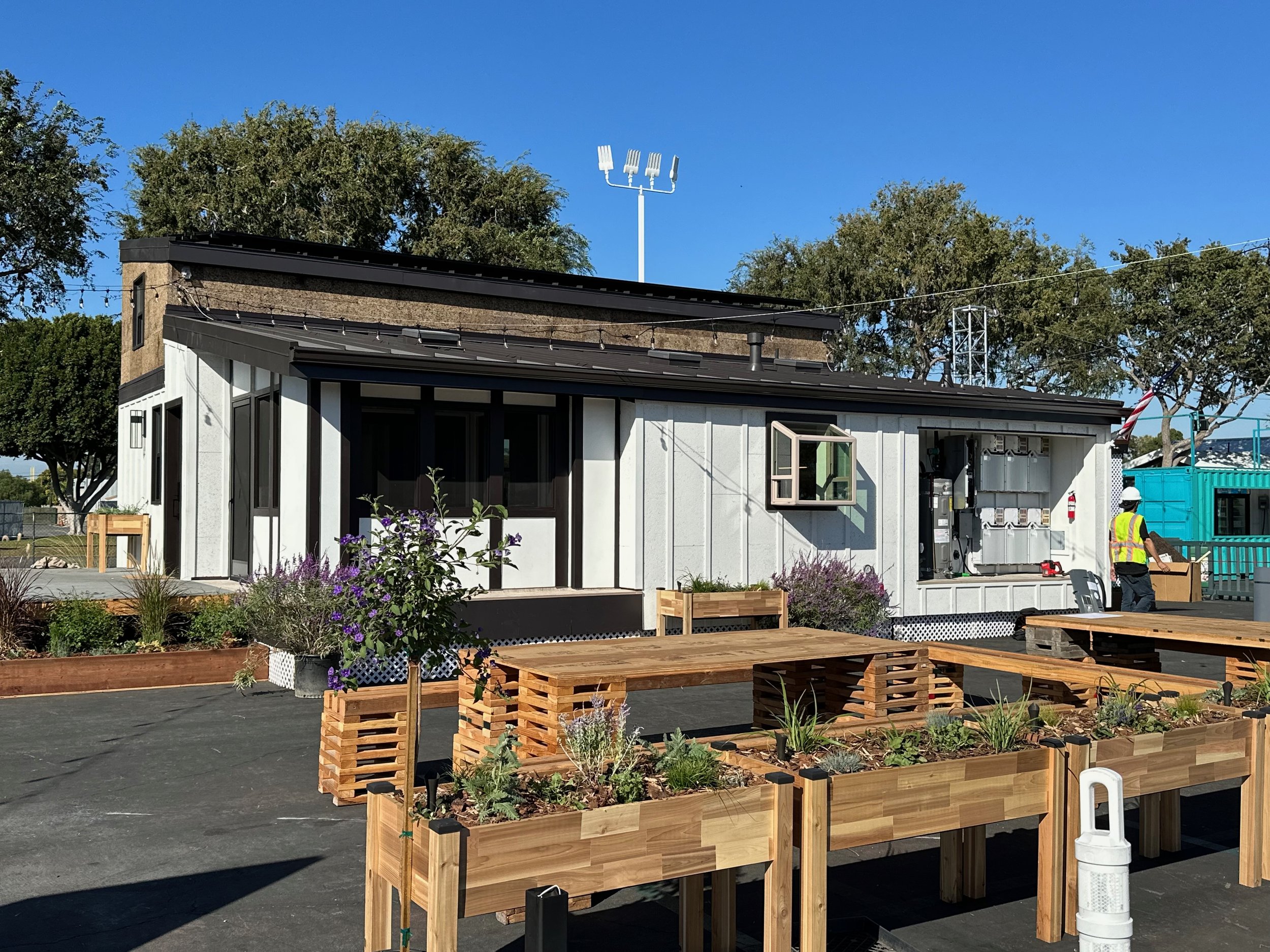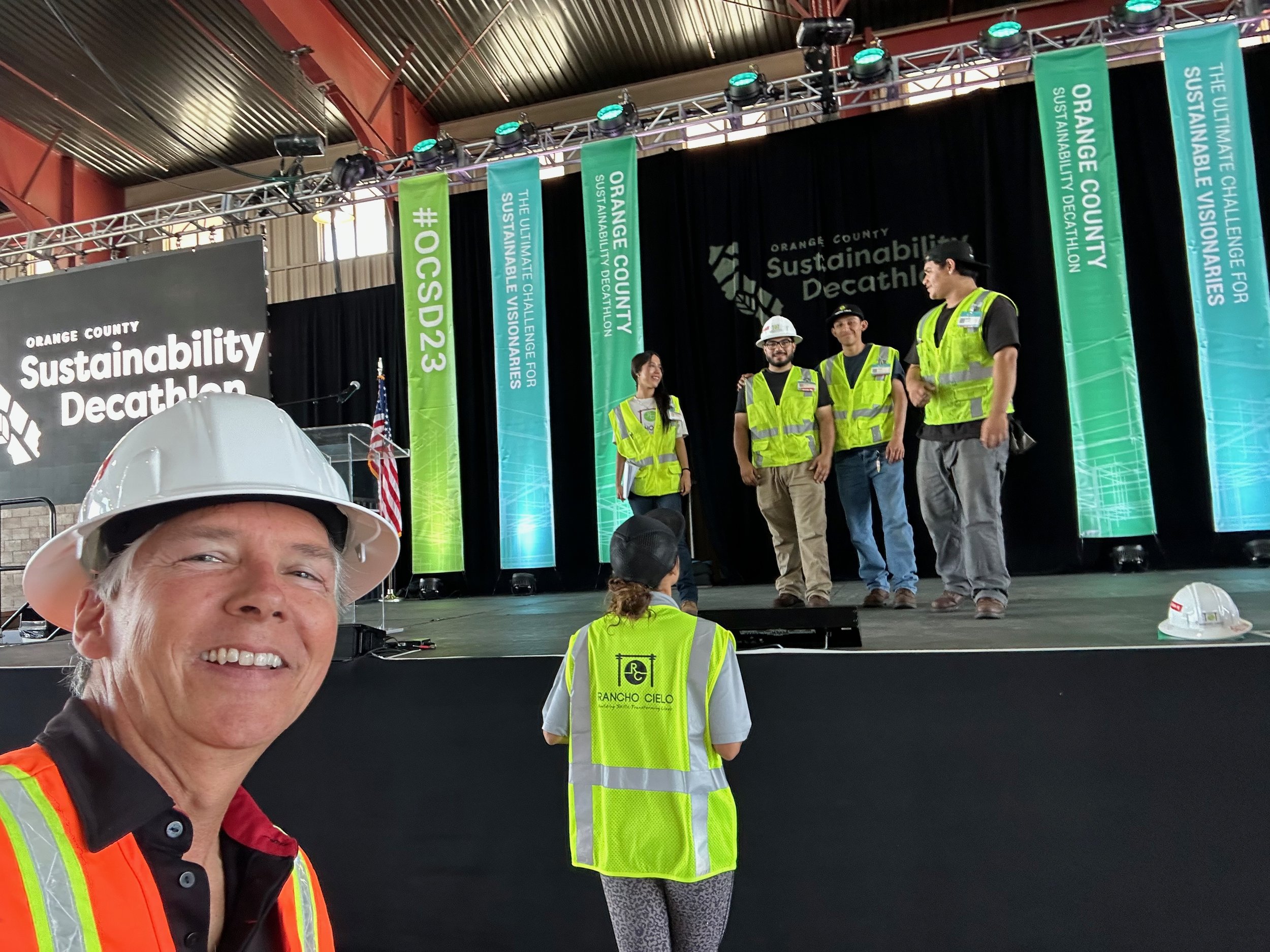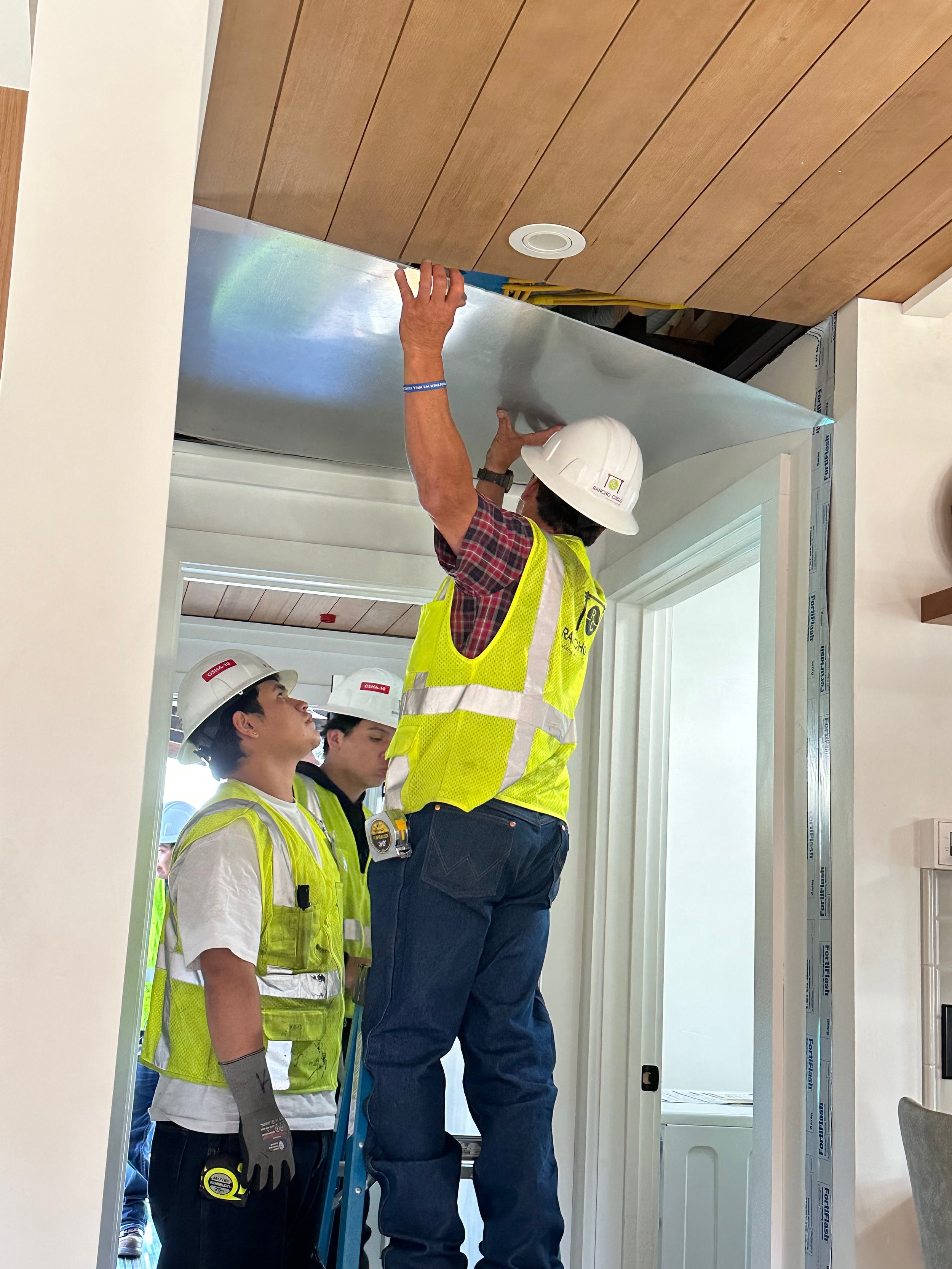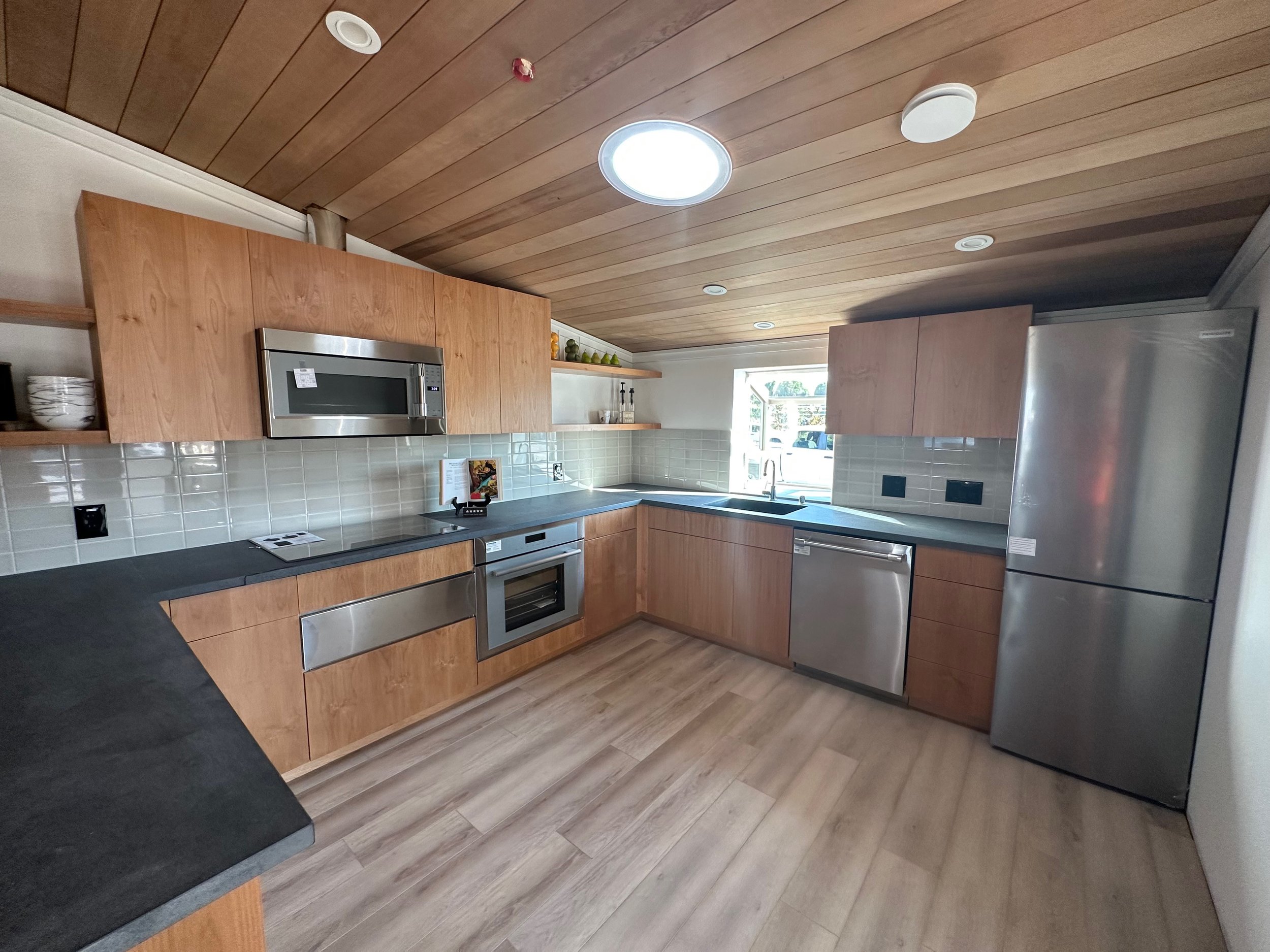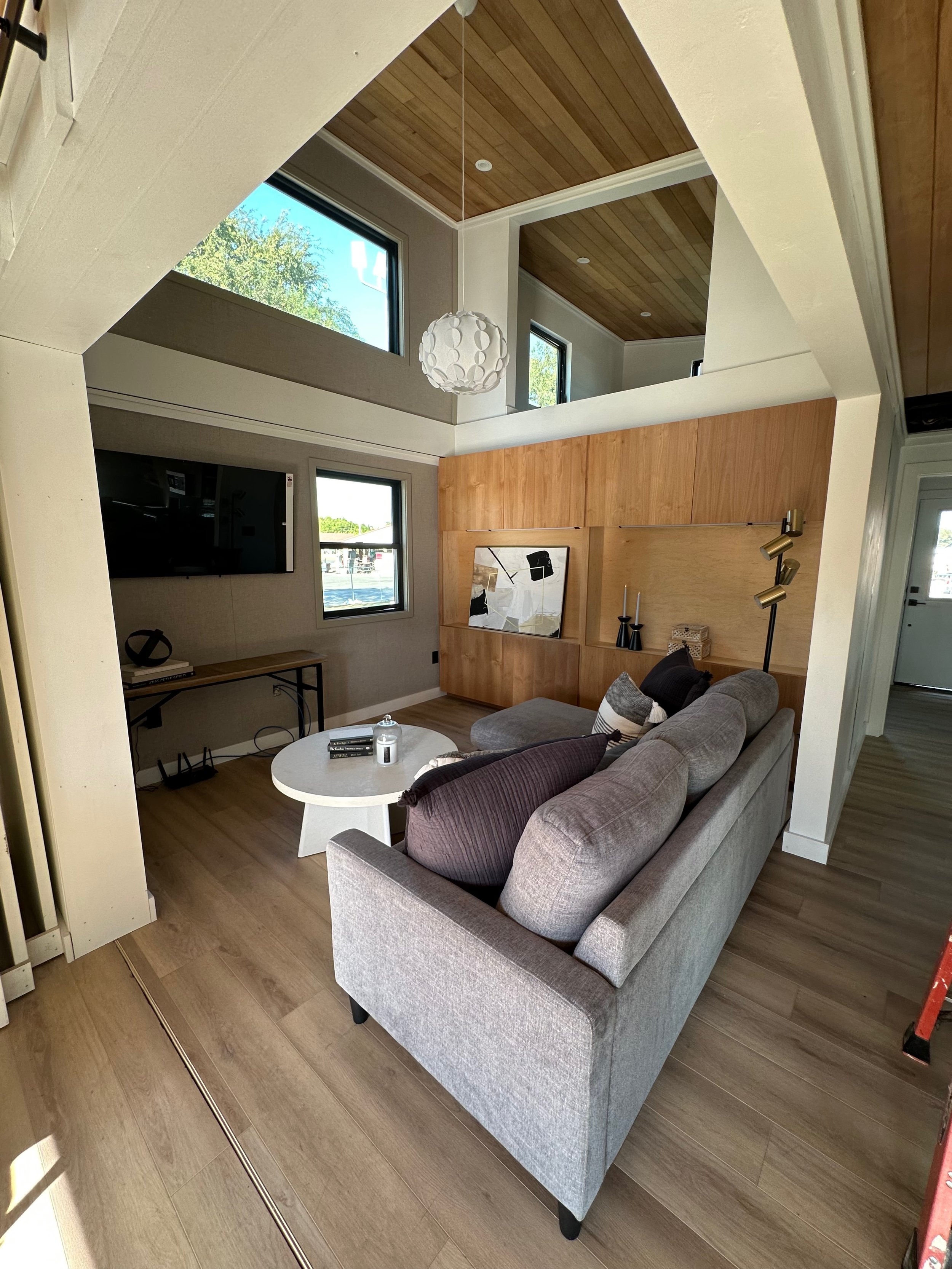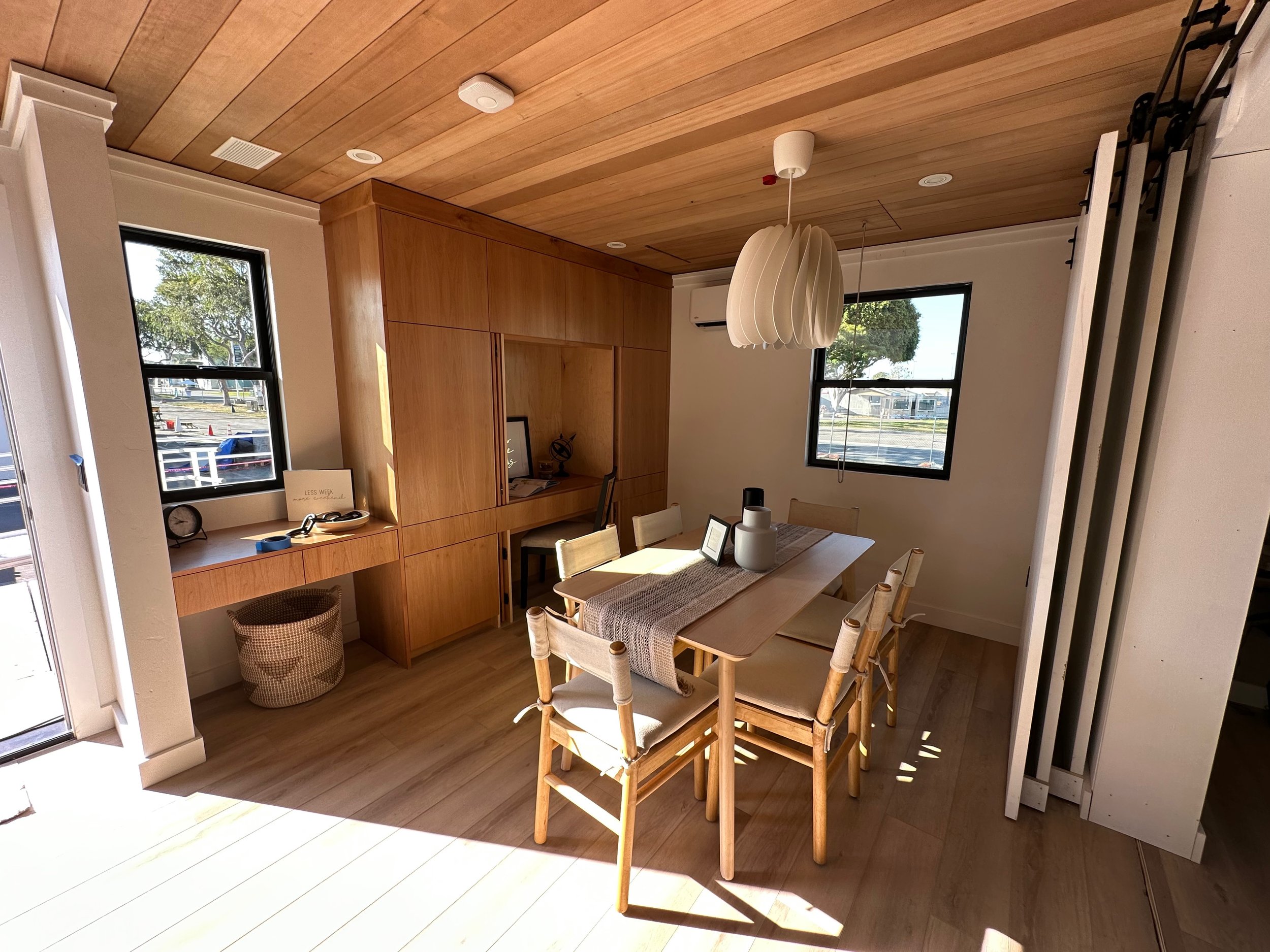Rancho Cielo: Age is No Barrier to Building a Sustainable Building Future
/Rancho Cielo: The School that Builds Skills for Building
Ted Taylor Vocational Center at Rancho Cielo in Salinas, California
With all the emphasis on the importance of designing energy-efficient buildings, it can sometimes get lost that there also needs to be a qualified workforce to build them. There can also be the assumption that this can only be done at the post-secondary level. Rancho Cielo’s building construction academy in Salinas, California demonstrates that solid construction skills can be taught to even younger participants. Rancho Cielo Construction Academy is one of several vocational programs run by Rancho Cielo. Participants in the program range from ages 16-24 years of age.
Rancho Cielo is a comprehensive learning and social services center for underserved and disconnected youth in Monterey County, California. Through a public-private partnership, Rancho Cielo provides diploma education, vocational training, counseling, and life skills development in a safe and affirming environment.
Entering the Sustainability Decathlon
Not satisfied just to focus on basic construction education, the Rancho Cielo Construction Academy entered and was selected to compete in the Orange County Sustainability Decathlon. Thomas Rettenwender founder of Ecological Design Lab and President of Realitree: Ecology and Architecture notes the real differences between Rancho Cielo and university participants, “So, schools with architecture and engineering departments with lots of funding are the types that can participate. We are a different and unique program at Rancho Cielo. We take high school kids and teach them construction skills and some who have graduated are participating.” The Orange County Sustainability Decathlan organizers found the story compelling and opted to include Rancho Cielo’s team in the competition.
Rancho Cielo was the only vocational school selected to participate in the competition. Selected teams were awarded $100,000 toward construction of the modular home. Rancho Cielo founder John Phillips led a fundraising effort that resulted in an additional $400,000 in cash and building materials to build the two-story, 750 square foot home. The Nexus 01 is a net-zero energy prototype demonstration home. It was assembled at the Construction Academy in Salinas and then transported to the to the Decathlon in September. The fully functioning house, needed to be at the competition grounds by October 1st. The competition isn’t limited to construction; competitors will also need to provide a marketing plan for potential buyers.
July Site Visit
Last July, we had the opportunity to see Rancho Cielo’s Nexus 01 under construction. The home is named Nexus 01 to honor the impressive collaboration between Rancho Cielo and the numerous industry experts and business partners who generously donated their time, talent, and resources to its completion. The home featured two Small Planet Supply products, Zehnder and ThermaCork. Even in the heat of summer, spirits were high as the project started to come together.
Onsite, Small Planet Supply’s Albert Rooks was able to provide a bit of guidance to the crew on installation of the system and the ducting for the Zehnder 200 installation. The lead and the team had the opportunity to ask questions and we had the opportunity to visit both the Construction Academy and the school.
Moving the Home to Orange County
In addition to the challenge of building the home onsite, Rancho Cielo, like all participants had to transport the home to the event and assemble it. Bill Hayward, who was the Healthy Home Advisor for the project, it took one day to transfer the home to the site and the team had seven days to get the homes completely ready before opening ceremonies. The teams stronger background in construction helped them to shine immediately. At the opening ceremony, the Rancho Cielo team was the only team with a completed house!
Sustainability Decathlon Evaluation and Scoring Areas
Since it’s labeled as a Decathlent, the Orange County Sustainability Decathlon is comprised of 10 contests that are scored independently of each other. Each contest is worth 100 points, with 1000 cumulative points available across the ten contest areas. The team with the highest cumulative score at the end of contest week wins the competition. Teams earn points through jury evaluations, performance-based ratings, and performance-based verifications. Teams are scored in ten areas:
Sustainability and Resilience
Architecture and Interior Design
Engineering and Construction
Communications and Marketing
Market Potential
Innovation
Energy Efficiency
Water Use and Conservation
Health and Comfort
Lighting and Appliances
Teams earn points through jury evaluations, performance-based ratings, and performance-based verifications. The team with the highest cumulative score at the end of contest week wins the competition.
After the Competition
After the competition, the students will disassemble Nexus 01 and return it to Rancho Cielo to become part of a small village of homes to serve as staff housing. Plans are to construct and build more modular units (nexushousing.org) while continuing to teach students skills they can use in future careers.
Product Update:
The Rancho Cielo team were the winners of the Decathlon. Read more here.
Stay updated with the latest trends and innovations in the construction industry. Subscribe to Planet Supply’s newsletter to be notified about new blog posts and other useful information each month.



